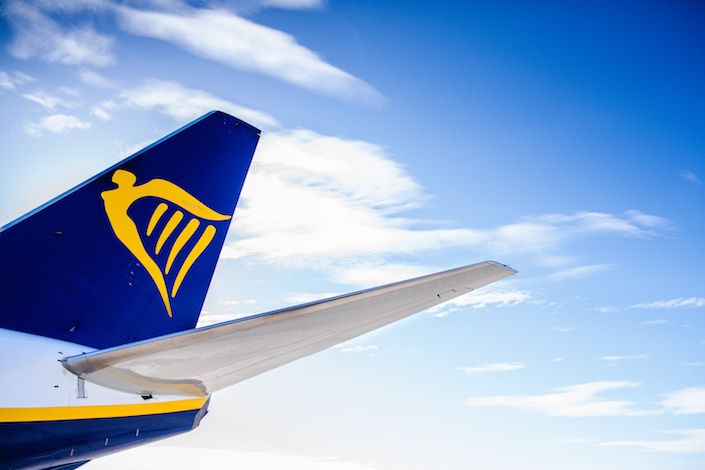Where travel agents earn, learn and save!
News / Ryanair refuses to cancel flights despite London Gatwick ATC shortage
The carrier is instead calling for action following cancelations in recent weeks nationwide

The Irish carrier is pushing back against officials at London Gatwick Airport who have asked airlines to reduce flights for the week. The airport and National Air Traffic Services (NATS) issued the declaration Monday as they revealed that a third of the airport's highly specialized air traffic controllers are on medical leave, with several COVID-19 cases.
Why is Ryanair pushing back?
The carrier revealed today that it would not adhere to the airport's request "due to NATS's self-inflicted ongoing staff shortages." In a statement seen by Simple Flying, Ryanair highlighted significant disruptions by the air traffic controller provider this summer, including the August 28th collapse that caused the cancellation of over 2,000 flights and delayed another 900,000 passengers.
Ryanair, which pays NATS almost €100 million annually for ATC service, claims that the incident and six subsequent disruptions at Gatwick Airport over the past four weeks call for action. The carrier is appealing to the country's Civil Aviation Authority (CAA) to intervene and protect passengers immediately and NATS CEO Martin Rolfe to take action to resolve these ATC staff shortages. A spokesperson for the airport noted that the refusal to cooperate would have little effect:
"Ryanair have a very small operation so unlikely they would be impacted."
Ryanair currently only flies to four destinations from Gatwick: Cork, Dublin, Shannon, and Alicante in Spain.
What caused the shortages?
The airport confirmed this week that it decided to reduce flights after close conversations with both NATS and airlines. The parties agreed that given the levels of staff sickness experienced over the last few weeks, the responsible thing to do is limit the number of flights this week to reduce the risk of daily disruption to passengers using the airport. The air traffic control organization confirmed that 30% of tower staff are unavailable for various medical reasons, including COVID-19.
The daily cap has been implemented to prevent last-minute cancelations and delays for passengers while NATS works through challenges driven by sickness and staffing constraints. The limit of 800 daily flights began on Monday and will remain in place until Sunday, October 1st. Before the limit's announcement, only four days were expected to exceed the cap. The schedule was set as follows:
- Tuesday - 800 movements
- Weds - 829 movements
- Thursday - 840 movements
- Friday - 865 movements
- Saturday - 800 movements
- Sunday - 830 movements
So far, there have only been two cancelations at Gatwick today (Tuesday) for any reason. Wednesday has sixteen cancelations set to occur tomorrow so far, primarily by easyJet. Thursday has none. Stewart Wingate, CEO of London Gatwick, apologized on behalf of the airport for the inconvenience to travelers:
“This has been a difficult decision but the action we have taken today means our airlines can fly reliable flight programmes, which gives passengers more certainty that they will not face last minute cancellations. We are working closely with NATS to build resilience in the control tower, and this decision means we can prevent as much disruptions as possible. London Gatwick would like to apologise to any passengers who have been impacted by these restrictions.”
Passengers are advised to check the status of their flights directly with their airlines.
What are the next steps?
Adding air traffic controllers is not a simple task. Each controller must be trained specifically for Gatwick airport operations. The process takes significant time, with a minimum of nine months of training for experienced air traffic controllers and up to two years for others before they can safely be certified to control aircraft at the world's busiest single-runway airport.
“Our operational resilience in the tower will improve as our staff return to work and we move out of the summer schedule, which is particularly busy at Gatwick. We continue to train additional air traffic controllers and expect another group to qualify to work in the tower over coming months, ready for next summer. Even an experienced air traffic controller takes at least 9 months to qualify at Gatwick and very few are able to do so, as Gatwick is such a busy and complex air traffic environment.”
Fellow low-cost-carrier easyJet confirmed it was working with the airport to eliminate flights but called the decision regrettable and urged NATS to address its "persistent" staffing issues.











